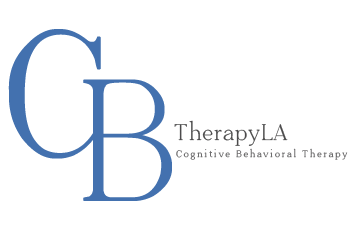Obsessive-Compulsive Disorder
“Fear can have a voice, but it doesn’t get a vote.”
– Elizabeth Gilbert
What is Obsessive-Compulsive Disorder?
Obsessive Compulsive Disorder (OCD) is a mental health disorder characterized by the presence of obsessions and/or compulsions that cause distress and interfere with daily functioning. Obsessions are intrusive and distressing thoughts, images, or urges that repeatedly enter a person’s mind. Compulsions are repetitive behaviors or mental acts that an individual feels driven to perform in response to an obsession or according to rigid rules.
In the DSM-5, OCD is defined as follows:
Obsessive-Compulsive Disorder (OCD):
OCD is characterized by the presence of obsessions, compulsions, or both. The individual experiences distress due to the obsessions or compulsions and recognizes that they are excessive or unreasonable. The obsessions and compulsions are time-consuming (take more than an hour a day) or cause significant impairment in social, occupational, or other important areas of functioning.
Obsessions are defined as:
1. Recurrent and persistent thoughts, urges, or images that are intrusive and unwanted.
2. The individual attempts to ignore or suppress these thoughts, urges, or images.
3. The individual recognizes that the obsessions are a product of their own mind (not imposed from outside).
Compulsions are defined as:
1. Repetitive behaviors or mental acts that the individual feels driven to perform in response to an obsession or according to rigid rules.
2. The behaviors or acts are aimed at preventing or reducing distress or preventing a dreaded event or situation.
3. However, these behaviors or mental acts are not connected in a realistic way to what they are intended to neutralize or prevent, or they are clearly excessive.
It’s important to note that OCD is a complex and often chronic condition that can significantly impact an individual’s quality of life. Diagnosis and treatment should be conducted by qualified mental health professionals. Treatment for OCD often includes cognitive-behavioral therapy (CBT), particularly exposure and response prevention (ERP), as well as medication in some cases. If you or someone you know is struggling with symptoms of OCD, it’s recommended to seek professional help.
While a proper diagnosis of Obsessive-Compulsive Disorder (OCD) should be conducted by a qualified mental health professional, there are certain questions that can help identify potential symptoms of OCD. These questions can be used as a starting point to gauge whether someone might be experiencing OCD-like symptoms. Keep in mind that only a mental health professional can make an accurate diagnosis.
Here are some questions that could be used as a preliminary assessment:
1. Are you bothered by persistent and intrusive thoughts that cause you anxiety or distress?
2. Do you find yourself repeatedly performing certain behaviors or mental rituals in response to these intrusive thoughts, in order to reduce your anxiety or distress?
3. Are these thoughts and behaviors time-consuming, taking up more than an hour of your day, or significantly impacting your daily life?
4. Have you tried to resist these thoughts or behaviors but found them difficult to control?
5. Do you recognize that these thoughts and behaviors are excessive or unreasonable, yet you still feel compelled to engage in them?
6. Do you experience distress when you’re unable to perform these behaviors or rituals?
7. Have these thoughts and behaviors caused disruptions in your relationships, work, or other areas of your life?
8. Have you noticed that these symptoms have been present for a significant period of time, typically more than a couple of hours a day for at least a couple of weeks?
9. Have you previously received any treatment or therapy for these symptoms?
Remember, these questions are not a substitute for a professional assessment. If you or someone you know is experiencing symptoms that suggest OCD therapy, it’s important to seek help from a mental health professional who can provide a comprehensive evaluation and appropriate treatment recommendations. OCD is a complex condition, and an accurate diagnosis is key to receiving effective treatment.
Common OCD Subtypes
| Contamination OCD | Perfectionism OCD |
| Emotional Contamination OCD | Perinatal/Postpartum OCD |
| Existential OCD | Real Event OCD |
| False Memory OCD | Relationship OCD |
| Harm OCD | Responsibility OCD |
| Just Right OCD | Scrupulosity (Moral & Religious Themes) |
| Meta OCD | Sensorimotor OCD |
| Pedophilia OCD | Sexual Orientation OCD |
